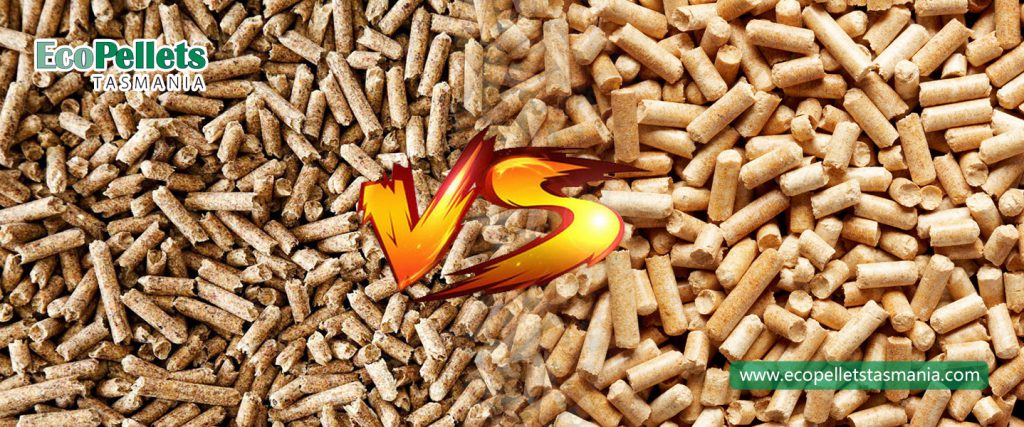How to choose wood pellets.
Should you choose hardwood or softwood pellets for your stove? Many homeowners new to pellet heating have this question on their minds, and the myths surrounding the hardwood versus softwood pellet issue often mislead customers.
This guide will clear up the misconceptions and explain the true difference between hardwood and softwood pellets. We’ll walk you through the basics of the debate, why people prefer different options and how you can make the best choice for your pellet stove.
Why listen to us? we are one of the biggest Tasmania local suppliers in providing high-quality, Provide high quality Wood, We are one of a few pellet manufacturers that provide hardwood and softwood blend pellets. We are unbiased when it comes to different wood species in wood pellets.

Plenty of customers looking for the best option for their home choose wood pellets the same way they select wood for a wood stove. The type of wood you use in a traditional wood stove determines safety, ease of use and temperature.
In nature, hardwoods grow more slowly than their softwood counterparts. Their growth rate affects their density over time. Wood stove burners are forced to use hardwood because of the density that determines burn time. Hardwood, with a higher density, has a long burn time compared to a softwood log. This often confuses a wood stove burner when they switch to a pellet stove.
Traditionally, wood stove burners have been most concerned with what type of wood they’re using and how the density will affect the wood’s use. However, during the wood pellet manufacturing process, the wood fibers get densified into pellets of similar densities.
Pellet production involves pressing wood and residuals into pellets with consistent volumes. The natural density of hardwood and softwood don’t have nearly as much influence on wood pellet efficiency than they do their original forms. Softwood pellets have higher BTUs than hardwood pellets, but only because of a higher concentration of lignins that ignite at high temperatures. It has nothing to do with the density.
Some consumers believe they cannot use softwood pellets in their pellet stove. This is incorrect. Your pellet stove may require different fuel and air settings for softwood, over the hardwood it may be used to, but a pellet stove can burn either.
Hardwood and softwood pellets go through similar processing. The final products end up having the same density. For instance, ash content is based on the region the wood is coming from and the quality control requirements the pellet manufacturer has with their raw material suppliers. There are hardwood pellets that are much better than some softwood pellets and vice versa.
While the densities for hardwood and softwood pellets are the same, the key difference between the two is the British thermal unit (BTU) measurement. Softwood has a higher BTU output, meaning it burns hotter than hardwood pellets due to the higher concentration of lignins.
In the end, the option you choose depends on your personal preferences and the production quality of your wood pellets.
The pelletizing process gives manufacturers precise control over the composition of wood pellets. When you use wood in your wood stove, you get the results nature made. However, if you choose wood pellets, the manufacturer decides the effectiveness of your fuel. It’s up to the manufacturer to determine what standards the wood pellets must meet and what processes they’ll undergo to deliver on customer expectations.
Finding the perfect Wood Pellets is about striking a balance you’re comfortable with between price and quality. It is generally true that hardwood and softwood blend pellets burn cleaner and hotter Longer. At www.ecopelletstasmania.com, we perform regular, independent testing on all of ,further ensuring high quality production.
